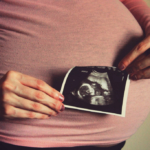Infertility and its treatment have been shown to be a trigger for both depression and anxiety. Women with pre-existing histories of depression and anxiety who have been stable on medication may find themselves with worsening symptoms brought on by the stress involved in the process of infertility treatment. Many women find the process an emotional roller coaster of hopefulness and disappointment.
Levels of depression and anxiety appear to vary. One study indicated that women presenting for IVF were more depressed, had lower self-esteem and were less confident than a control group of fertile women. Depression, anxiety and hostility scores tended to be higher in women at the time of embryo transfer (before the pregnancy test) than at the first or second (before transfer) visits. After a failed IVF cycle, women experienced a further lowering of self-esteem and an increase in depression relative to pre-treatment levels.
Comparisons between women undergoing repeated IVF cycles and first-time participants suggest that ongoing treatment may lead to an increase in depressive symptoms.
Treatment for depression and anxiety becomes important during infertility treatment as there is evidence to indicate that depression may negatively affect success rates in infertility treatment. It is thought that stress may affect fertility and may play a role in early pregnancy loss; stress hormones such as cortisol may affect uterine circulation which may affect implantation and placental function.
Interventions which reduce stress may help to improve outcomes. Alice Domar and colleagues demonstrated that group-based psychological interventions that target stress reduction through relaxation techniques lead to higher conception rates.
Although many women undergoing fertility treatment may be reluctant to take medications, they may be appropriate for managing symptoms of anxiety and depression. Ideally, a medication which one could continue throughout pregnancy, if needed, should be selected. If the woman is treating milder symptoms of anxiety which are only related to the uncertainty of the IVF process, it might be possible to discontinue the medication once a pregnancy is documented and the IVF process has ended. However, it should be noted that many women continue to experience significant symptoms of anxiety and depression after attaining a successful pregnancy.
Kim Pearson, MD
Ruta Nonacs, MD PhD
Read more:
Parikh RM et al. Depression and Anxiety in Couples Presenting for In Vitro Fertilization. In: Women’s Health and Psychiatry 2002. Lippincott, Wiliams & Wilkins, 107-113



![By Vera Kratochvil [Public domain], via Wikimedia Commons](https://womensmentalhealth.org/wp-content/uploads/2015/06/Mother_Kissing_Baby-150x150.jpg)



What medications for depression/anxiety would fall into the safe category for IVF/Pregnancy?
I had fertility treatment for my Baby n its was succeeded in first month I became pregnant but after delivery n pistpartum period I hav alot of depression n fear anxiety…less sleep in night bad night mares
Is this due to infertility treatment???
It would be unlikely that the fertility treatment is the cause, but you might want to talk to your doctor. It might be postpartum depression or anxiety.